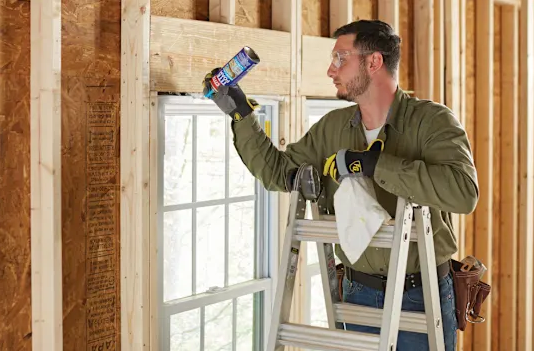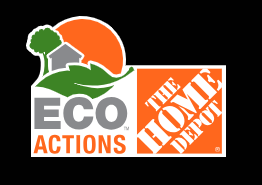Home Depot is an american retail company, offering all types of tools and building materials, as well as appliances, fuel rental, and transportation services. Specializing in home improvement products and services, it is a well-known and influential company in the United States.
In this article, we will explain who owns Home Depot, as well as who is the CEO of the company. We will give details that may be of interest, as well as its history and organizational structure, and even provide some interesting facts about this company, giving a clear and accurate vision of Home Depot.
Table of Contents
Who owns Home Depot?
The Home Depot owner is not just one; it is a public company with shares listed on the New York Stock Exchange. It means that anyone with access to the stock market can buy shares and thus become a part owner of a fraction of the company. However, not all shareholders have the same level of influence, which depends on the amount of shares they own.
Among the major Home Depot owners are The Vanguard Group and BlackRock, the largest asset managers in the world, known for managing trillions of dollars in investments. Vanguard is known for its index funds, while BlackRock has a key role in global investment management through its Aladdin platform.
Home Depot was founded in 1978 by Bernie Marcus, Arthur Blank, and other partners as an innovative concept in the home improvement sector. Its rapid expansion led it to go public, allowing investors from around the world to acquire stakes in the company. While The Vanguard Group and BlackRock do not directly manage Home Depot’s day-to-day operations, their influence as major shareholders give them power in decisions such as appointing directors and approving long-term strategies.
Who is the CEO of Home Depot?
Edward ‘Ted’ Decker is the Chairman, Chief Executive Officer (CEO), and a member of the Board of Directors of Home Depot. Long before joining Home Depot, Ted gained experience in business development, strategic planning, and finance while working at Kimberly-Clark Corp. and Scott Paper Co. and in various roles at PNC Bank. His background includes notable international experience, having lived and worked in countries such as England and Australia.
At Home Depot, Ted has held a wide range of key positions. For more than six years he served as head and executive vice president of merchandising, overseeing both physical shop and online retailing, holding positions as director and senior director of business valuation, vice president, senior vice president of strategic development, and senior vice president of retail finance. From 2020 to 2022, he assumed the role of president and chief operating officer, where he was responsible for critical areas such as global shop operations, supply chain, outside sales, customer service, real estate, marketing, digital strategy, and merchandising.
Currently, as CEO, Ted has driven significant improvements in the integration of digital and physical channels, ensuring that Home Depot delivers a more streamlined and efficient shopping experience tailored to its customers’ preferences, whether online or in-store.
The History and Organizational Structure of Home Depot
The company was founded in 1978, with Bernard Marcus, Arthur Blank, Ron Brill, Pat Farrah, and Ken Langone being the Home Depot owners with a vision of creating large home improvement shops, outgrowing their competitors (check here which are Home Depot’s main competitors today.). In 1979, the first two shops opened in Atlanta. In 1981, the company went public on NASDAQ and, in 1984, was listed on the New York Stock Exchange. During the 1980s and 1990s, Home Depot rapidly expanded its presence in the United States and Canada, surpassing Lowe’s as the largest chain in its industry in 1989. Key milestones included the acquisition of Aikenhead’s Hardware in 1994 and the entry into the Mexican market in 2002 with the purchase of the Del Norte chain. In addition, it launched the ‘EXPO Design Center’ and the Home Decorators Collection brand, establishing itself as a leader in home improvement and design products and services.
Home Depot operates as a multinational with key subsidiaries that expand its reach. Among its strategic acquisitions are Maintenance Warehouse (1997), Apex Supply (1999), and Interline Brands (2015), which strengthened its specialty supply and services business for contractors and businesses. It also acquired The Company Store in 2017, focusing on online sales of household goods. These brands and divisions complement its global operations, integrating consumer and business sales with its e-commerce platform.
Home Depot is recognized not only for its scale but also for its ability to adapt to market trends. In 2007, it reorganized to address financial challenges and improve efficiencies, including the sale of HD Supply. In 2014, it overcame a significant cyberattack that affected customer credit card data, taking steps to ensure security. In 2023, it committed $1 billion to increase hourly employee wages, underscoring its commitment to its workforce. Today, Home Depot combines a strong physical presence with a digital focus, achieving annual revenues of over $150 billion and remaining a leader in the home improvement market.
Interesting Facts About Home Depot
Since 1981, The Home Depot has had a charismatic mascot, Homer D. Poe. This jovial icon has been an integral part of the company’s culture, appearing in advertisements, signage, awards, and even in life-size costumes available for the shops. Homer even has a wife named Daisy, adding a familiar touch to his story.
On the philanthropic front, The Home Depot Foundation, established in 2002, has donated more than $200 million in resources, including time, money, and materials, to causes such as Habitat for Humanity and building playgrounds with KaBOOM! They have also driven programs to support the military community, such as 10% discounts and scholarships for veterans’ organizations.
Regarding sustainability, The Home Depot enjoys environmental initiatives with labels to promote eco-friendly products and fluorescent bulb recycling programs, demonstrating their commitment to conservation and making a positive impact on the planet.
Conclusion
Home Depot is one of the most influential home improvement chains in North America, noted for its public business model, making it accessible for any investor to acquire operations in the company. Major Home Depot owners include The Vanguard Group and BlackRock, who influence strategic decisions. CEO Ted Decker leads with a focus on digital integration and global operations. Founded in 1978, it has expanded its international presence and diversified its business through strategic acquisitions. In addition, it is recognised for its philanthropy and commitment to sustainability, leading recycling and community support programmes, establishing itself as a leader in its industry.
For more info about this company you can see these articles published on our website such as the SWOT analysis of Home Depot and the Marketing Mix of Home Depot and 4Ps.
FAQ
Who controls Home Depot?
Home Depot is a public company listed on the New York Stock Exchange, which means it has no single owner. Its shares can be purchased by anyone with access to the stock market. However, the most influential shareholders are large asset managers such as The Vanguard Group and BlackRock, who own significant stakes and play a key role in the company’s strategic decisions.
What major achievements and acquisitions have marked Home Depot’s history?
Home Depot was founded in 1978 and opened its first two shops in Atlanta in 1979. Over the following decades, it expanded rapidly in the United States, Canada and Mexico, outperforming its competitors. Notable acquisitions include Aikenhead’s Hardware (1994), Maintenance Warehouse (1997), Interline Brands (2015) and The Company Store (2017). It also established itself as the largest chain in its sector in 1989. The company also innovated with its e-commerce platform, strengthening its market leadership.
How does Home Depot support the community and the environment?
Home Depot demonstrates its commitment to society and the environment through multiple initiatives. The Home Depot Foundation, founded in 2002, has donated more than $200 million to causes such as Habitat for Humanity and projects for the military community. It also offers a 10 percent discount to veterans and funds construction training programmes. On the environmental front, it leads sustainability efforts with eco-labels on its products, a fluorescent bulb recycling programme and policies to reduce the use of wood from endangered forests.

